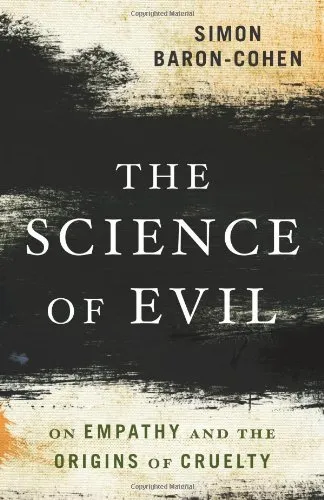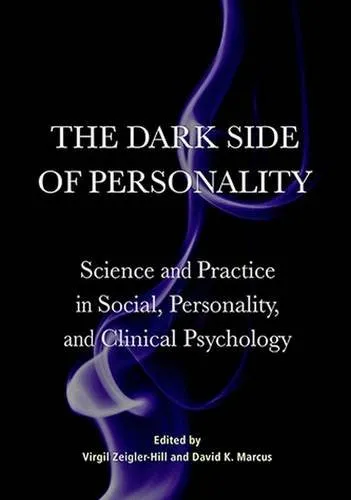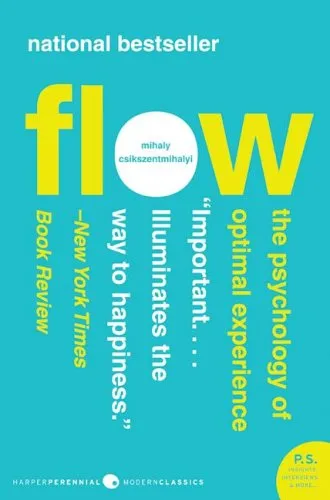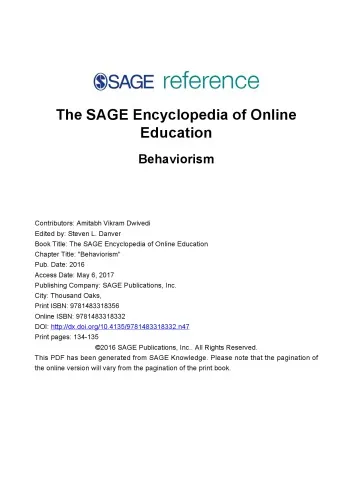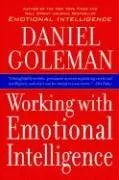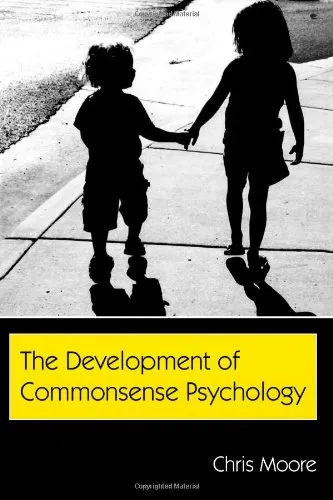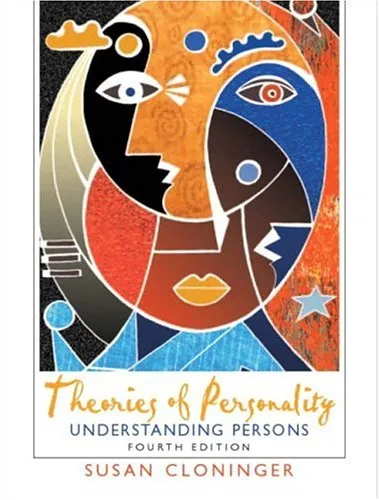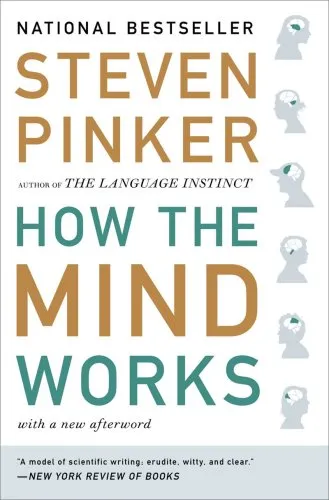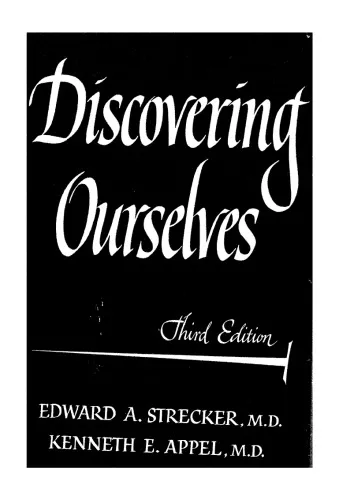The Science of Evil: On Empathy and the Origins of Cruelty
4.2
بر اساس نظر کاربران

شما میتونید سوالاتتون در باره کتاب رو از هوش مصنوعیش بعد از ورود بپرسید
هر دانلود یا پرسش از هوش مصنوعی 2 امتیاز لازم دارد، برای بدست آوردن امتیاز رایگان، به صفحه ی راهنمای امتیازات سر بزنید و یک سری کار ارزشمند انجام بدینکتاب های مرتبط:
معرفی کتاب
کتاب «علم شرارت: درباره همدلی و ریشههای خشونت» یکی از آثار برجسته پروفسور سایمون بارون-کوهن است که به بررسی عمیق رابطه بین همدلی و رفتارهای خشونتآمیز میپردازد. این کتاب تلاش میکند تا به سوالات بنیادی درباره ماهیت انسانی و چرایی بروز رفتارهای ظالمانه پاسخ دهد.
خلاصه کتاب
کتاب «علم شرارت» با تشریح مفهوم همدلی آغاز میشود و سپس به بررسی نقص در این مهارت حیاتی برای انسانها و تأثیرات آن بر روابط اجتماعی و رفتارها میپردازد. نویسنده به بررسی شرایط روانی مختلف و اختلالاتی که همراه با کاهش همدلی هستند مانند Autism Spectrum Conditions و شخصیت ضد اجتماعی میپردازد و نشان میدهد که چگونه این شرایط میتوانند به رفتارهای خشونتآمیز منجر شوند.
بارون-کوهن با استفاده از مثالها و داستانهای واقعی، دیدگاههای روانشناسی، زیستشناسی و جامعهشناسی را ترکیب کرده تا این موضوع پیچیده را برای خوانندگان روشن کند. او به تأثیر محیط، ژنتیک و تجربیات زندگی در شکلگیری توانایی همدلی و به دنبال آن واکنشهای رفتاری افراد توجه دارد.
نکات کلیدی
- همدلی به عنوان توانایی درک و سهیم شدن در احساسات دیگران از اهمیت ویژهای برخوردار است.
- کاهش همدلی میتواند ریشه بسیاری از رفتارهای آسیبزا و غیراخلاقی باشد.
- اختلالات روانی خاص میتوانند منجر به کاهش همدلی شوند و زمینهساز رفتارهای خشونتآمیز گردند.
- توسعه همدلی در جامعه میتواند به کاهش خشونت و افزایش فهم میانفردی کمک کند.
نقلقولهای معروف
"همدلی مانند چسبی است که انسانها را به یکدیگر متصل میکند و نبود آن میتواند منجر به فروپاشی روابط انسانی شود."
"ما بدون توانایی همدلی نمیتوانیم به درستی رفتارهای انسانی را درک کنیم یا نسبت به آنها واکنش مناسبی نشان دهیم."
اهمیت کتاب
کتاب «علم شرارت» به دلیل بحث عمیق و جامعی که درباره یکی از موضوعات مهم علوم انسانی ارائه میکند، اهمیت بالایی دارد. این کتاب به خوانندگان کمک میکند تا با فهم بهتری از پیچیدگیهای رفتار انسانی، درک عمیقتری از مفاهیم همدلی و خشونت پیدا کنند. با اشاعه چنین آگاهیهایی میتوان به ایجاد جامعهای پرهمدلیتر و با رفتارهای ساختارشکنانه کمتر امیدوار بود.
این کتاب نه تنها برای پژوهشگران و دانشجویان در حوزه روانشناسی، بلکه برای عموم افرادی که علاقهمند به درک بهتر رفتارهای انسانی و دلایل ایجاد خشونت هستند مفید و ضروری است.
Introduction to 'The Science of Evil: On Empathy and the Origins of Cruelty'
In a world where acts of cruelty often leave us bewildered, 'The Science of Evil: On Empathy and the Origins of Cruelty' by Simon Baron-Cohen offers a groundbreaking perspective, suggesting that at the root of evil lies a profound lack of empathy. This book ventures into the intersection of psychology and neuroscience, piecing together the intricate mechanisms that can lead to inhumanity and cruelty.
Detailed Summary of the Book
Simon Baron-Cohen's insightful work meticulously explores the concept of empathy and its deficiency, which he suggests might be the linchpin of human cruelty. Drawing from historical, clinical, and experimental research, Baron-Cohen proposes the revolutionary idea that evil is not something abstract but a lack of advanced empathy. Empathy, he explains, consists of two types: cognitive empathy and affective empathy. Cognitive empathy is the ability to recognize others' emotions, and affective empathy is the capacity to respond to those emotions with an appropriate emotion.
The book travels through insightful examples, from Nazi doctors to homegrown terrorism, to highlight how varying degrees of empathy impact moral decision-making. Baron-Cohen introduces the concept of the "empathy circuit" in the brain, discussing how factors such as genetics, upbringing, and even neurochemical imbalances can disrupt this circuit, leading to diminished capacity for empathy.
Throughout the book, various case studies illustrate personalities and behaviors that fall onto the zero-empathy spectrum, offering clues to the origins of callousness and cruelty in human behavior. Baron-Cohen pulls together different strands of psychological science to provide a narrative that not only seeks to explain why evil happens but also offers hope through understanding and interventions that could foster empathy.
Key Takeaways
- The lack of empathy is a critical component in understanding the manifestation of evil and cruelty.
- Empathy can be broken down into cognitive and affective components, both of which are essential for moral reasoning.
- Cultural, genetic, and environmental factors all play significant roles in empathy development.
- Understanding the neurological basis of empathy deficiency can lead to better interventions and foster more empathetic societies.
- The concept of an "empathy circuit" in the brain suggests that empathy might be scientifically measurable and improvable.
Famous Quotes from the Book
Here are some thought-provoking quotes from the book that capture its essence:
"Empathy erosion arises from both psychological and biological processes, leading to moral and ethical failures."
"The banality of evil is not so much a deficiency of intelligence, but a deficiency of empathy."
Why This Book Matters
'The Science of Evil' is a pivotal work that shifts our understanding of morality and cruelty from abstract ethical battles to concrete psychological phenomena. It challenges the conventional binary perception of good versus evil, offering a nuanced perspective that could reshape moral philosophy and criminal justice. Baron-Cohen’s insights bridge gaps between academic disciplines, making it a crucial read for psychologists, educators, policymakers, and anyone interested in the underpinnings of human behavior.
The book's exploration of empathy and its failures doesn’t just diagnose societal ills but also points towards solutions, setting a course for developing empathy in individuals as a foundation for more harmonious human interactions. It is a significant contribution to discussions around empathy and ethics, promoting a more scientifically grounded understanding of why humans sometimes act with courage and kindness, and other times with cruelty and indifference.
دانلود رایگان مستقیم
شما میتونید سوالاتتون در باره کتاب رو از هوش مصنوعیش بعد از ورود بپرسید
دسترسی به کتابها از طریق پلتفرمهای قانونی و کتابخانههای عمومی نه تنها از حقوق نویسندگان و ناشران حمایت میکند، بلکه به پایداری فرهنگ کتابخوانی نیز کمک میرساند. پیش از دانلود، لحظهای به بررسی این گزینهها فکر کنید.
این کتاب رو در پلتفرم های دیگه ببینید
WorldCat به شما کمک میکنه تا کتاب ها رو در کتابخانه های سراسر دنیا پیدا کنید
امتیازها، نظرات تخصصی و صحبت ها درباره کتاب را در Goodreads ببینید
کتابهای کمیاب یا دست دوم را در AbeBooks پیدا کنید و بخرید
1667
بازدید4.2
امتیاز0
نظر98%
رضایتنظرات:
4.2
بر اساس 0 نظر کاربران
Questions & Answers
Ask questions about this book or help others by answering
No questions yet. Be the first to ask!
